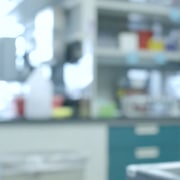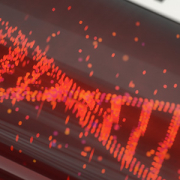Pharmacogenomics: The future of preventing adverse drug reactions
In the second part of our pharmacogenomics blog series, we look at how new research could lead to a more effective application of drugs
A new biobank scheme, the Yellow Card biobank, has been launched in June 2023 with the aim of learning more about the role of genetic variants in predicting how individuals react to specific drugs.
A collaboration between Genomics England and the UK’s drug safety regulator, the Medicines and Healthcare products Regulatory Authority (MHRA), the biobank will release its initial research findings in 2025.
The cost of ineffective prescribing
It is estimated that 1 in every 16 hospital admissions is linked to adverse drug reactions, and the cost to the NHS of ineffective or unsuitable prescriptions that cause adverse reactions is approximately £2 billion annually.
Variants in an individual’s genes can impact the effect of certain drugs, known as pharmacogenomics, and it is believed that genomic testing could prevent almost a third of adverse reactions.
Some gene associations with adverse reactions are already understood, such as the antibiotic gentamycin, which can cause permanent deafness in infants who have a particular gene variant.
However, there are many other examples where the genomic component is less clear. In these cases, for a test to be developed, researchers need to discover not only which genes are associated with these reactions, but which specific variants in those genes need to be screened for. This is where the biobank comes into play as a resource for researchers to do just that.
Starting the pilot: Allopurinol
The Yellow Card biobank pilot will begin with looking at reactions to allopurinol, a drug used to counteract the high levels of uric acid that can cause gout and kidney problems. Allopurinol is associated with a group of rare but severe skin reactions including Stevens-Johnson syndrome (SJS), which often requires admission to intensive care and can be life threatening without treatment.
There are a number of factors that affect a person’s chance of developing SJS. Many are not genomic, such as age and other medications the patient is on. However, the condition is more prevalent in people with a relative who has also developed it while on allopurinol, which indicates a potential genomic cause.
Many gene variants with pharmacogenomic effects have been discovered in large genome-wide association studies, but because SJS and related conditions are very rare, a different approach may be required.
Benefits of the biobank
The biobank will be an extension of the existing Yellow Card scheme run by the MHRA, which allows patients and their healthcare providers to report adverse drug reactions.
The blood samples collected will be from people who have reported an adverse reaction to allopurinol. A nurse will visit them at home to take the sample, which will then be used to sequence their genome and used to look for pharmacogenomic gene variants associated with the reaction.
If the pilot is successful, other drugs which cause poorly understood reactions will be added to the programme in future. These efforts will contribute towards advancing pharmacogenomics, allowing for the optimisation of more medicines and providing an opportunity to prevent rather than react to adverse drug reactions.
“Almost a third of adverse reactions to medicines could be prevented with the introduction of genetic testing,” said MHRA chief executive, Dr June Raine. “The biobank will help us move towards our goal of personalised medicine – which, when achieved, means patients across the UK will receive the safest medicine for them, based on their genetic makeup.”
- Read part one of this two-part post: Point-of-care genomic testing suggested for stroke patients









